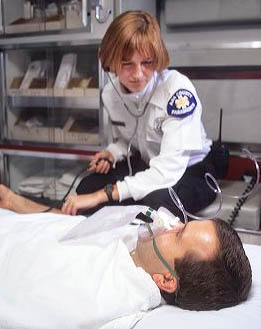County
“Chill Out” Treatment For Heart Attacks
If you suffer a heart stopping attack, Ada County the paramedics are liable to “put you on ice” before you even reach the hospital, thanks to a new “Induced Hypothermia” treatment.

It seems to work on the same science as the “cold water drowning” syndrome that enables people to survive after being under water for prolonged periods. Here is the complete explanation from Ada County EMS:
As of November 1st, 2010, Ada County Paramedics has implemented modern technology and trained extensively to treat heart attack patients with induced hypothermia.
When a person’s heart stops beating, brain and neurological damage can quickly occur because of the lack of oxygen. Once the heart is restarted, inducing hypothermia lowers a patient’s body temperature below what is required for “normal metabolic functioning.” This slows the heart rate and lowers cerebral (brain) metabolism.
Decreasing metabolic activity lowers a patient’s chance for neurological injury and brain damage. Ada County Paramedics Director Troy Hagen explains that “This is the most exciting thing to happen since CPR and Defibrillation in the treatment of cardiac arrest survivors.”
Paramedics will use the new procedure and induce hypothermia when they regain a heartbeat after a cardiac arrest and the patient remains unresponsive. Every ambulance is now equipped with new refrigeration equipment that keeps the intravenous fluids chilled to 35 degrees Fahrenheit, which is the key component in the induced hypothermia protocol. Paramedics begin the cooling process and the patient is transferred to the hospital.
To insure more advertising-free Boise Guardian news, please consider financial support.
 November 5, 2010
November 5, 2010 
Nov 5, 2010, 6:40 pm
We put food on ice for the same reasons… must hurt like heck though
Nov 6, 2010, 9:13 am
Most patients never remember it, and are not awake for the process. They are also sedated as part of the protocol.
I wish I could convey the excitement over this protocol at ACP. While it wont improve dramatically the number of survivors, the ones who do survive are far far more likely to go on to have meaningful recoveries (as in hold down a job, and live independently, etc)than survivors who do not receive the treatment.
Not all patients are candidates unfortunately due to other medical issues, but most are.